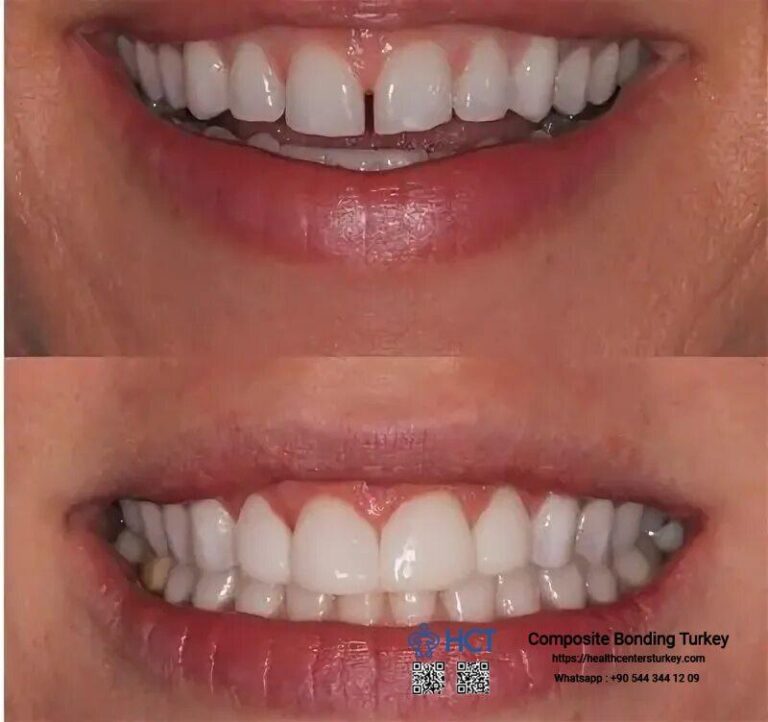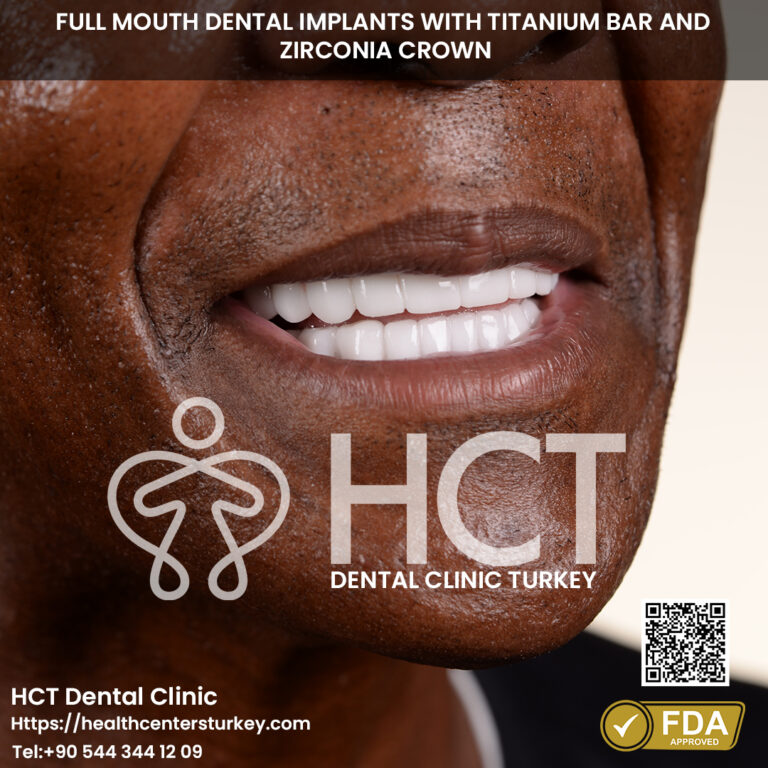Embrace Your Dental Transformation in Turkey
Embrace Your Dental Transformation in Turkey
Blog Article
Top Reviewed Dental Treatments for International Patients in Turkey

Dental implants have turn out to be a focus in modern dentistry, providing a reliable answer for these dealing with tooth loss. Among the a quantity of advantages they provide, one significant facet price considering is their influence on adjacent teeth. Understanding how dental implants affect surrounding teeth aids in making informed choices about oral health.
When a tooth is lost, neighboring teeth can easily shift towards the space left behind. This movement can result in misalignment, which compromises the overall bite and function of the mouth. Dental implants mimic natural tooth roots, thereby sustaining the place of adjacent teeth.
Innovative Dental Technologies for Every Patient
The stability offered by an implant is essential, as it helps in preserving not simply the physical alignment but in addition the structural integrity of the jawbone. When a tooth is missing, the underlying bone can begin to deteriorate as a result of lack of stimulation. An implant exerts strain on the bone throughout chewing, much like a natural tooth, which promotes bone health.
In some cases, a bridge or partial denture could also be thought-about as an alternative to implants. While these options might restore some performance, they can place additional stress on neighboring teeth. Bridges often require submitting down the encircling teeth to accommodate the anchors, thereby affecting their health over time. Dental implants, however, do not alter existing teeth, making them a more conservative alternative.
Receive Exceptional Dental Service in Turkey
Hygiene becomes one other important issue when contemplating adjacent teeth within the context of implants. With dental implants, the individual can maintain a regular hygiene routine similar to natural teeth. Flossing and brushing around the implant are simple, making certain that the gum tissue stays wholesome and minimizing the chance of gum disease that might adversely affect adjacent teeth.
Moreover, the materials used in dental implants are biocompatible. This means they are designed to integrate well with the body, reducing the chances of an adverse reaction. This attribute not solely makes the implant protected but in addition protects close by teeth from potential points that might come up as a outcome of contamination or infection.
In phrases of aesthetics, dental implants offer a natural feel and appear, carefully resembling original teeth. Adjacent teeth benefit from this aesthetic appeal as well. When an implant is positioned, the encircling gum tissue may be formed to imitate natural contours, thereby enhancing the overall appearance of the smile. This aesthetic factor can encourage people to spend cash on their oral care routines, benefiting both the implants and adjacent teeth in the long run.
Expert Oral Care Specialists Delivering Crowns and More in Turkey
Another concern is the potential for gum disease, which may have an effect on the health of adjacent teeth. Gum disease can occur when plaque builds up around teeth and implants. Regular dental visits and acceptable oral hygiene can mitigate this concern. The presence of implants can even function a motivator for higher dental hygiene practices, as individuals become more conscious of sustaining their total mouth health.
Studies have proven that dental implants can contribute to a big improvement in quality of life. Patients usually expertise increased confidence and are less hesitant to smile or engage in social interactions. A wholesome and well-maintained smile indirectly promotes better take care of adjacent helpful site teeth, as people tend to turn into more aware of their total oral hygiene.
One often-overlooked facet is the psychological influence of dental implants on patients. Knowing that implants provide long-term options can ease the anxiety associated with tooth loss. With fewer worries about future tooth shifts, patients usually have a tendency to invest time and effort into caring for their teeth, which incorporates adjacent teeth.
In conclusion, dental implants function more than only a answer for missing teeth; they play a pivotal function in maintaining the health and integrity of adjacent teeth. From stopping misalignment to promoting gum health and enhancing aesthetics, the advantages are manifold. By opting for implants, people cannot solely restore functionality but additionally foster a more healthy oral environment for surrounding teeth. The psychological and aesthetic advantages further contribute to an general enhanced quality of life.
Explore Budget-friendly Dental Treatments across Turkey
In the long term, understanding how dental implants have an effect on adjacent teeth can information individuals in making empowered decisions regarding their dental health. The integration of those implants into the mouth acts as a stabilizing force, safeguarding each the physical alignment and functionality of neighboring teeth, whereas promoting a long-lasting, healthy smile.
- Dental implants usually do not exert stress on adjacent teeth, maintaining their integrity and decreasing the chance of shifting or misalignment.
- The placement of an implant typically encourages better oral hygiene habits, positively influencing the health of adjacent teeth via improved cleansing practices.
Tailored Dental Solutions for Patients Seeking Care in Turkey
- In some cases, dental implants can stimulate the encompassing bone, which helps protect the natural teeth's position and general dental structure.

- The gap left by missing teeth can result in bone loss; dental implants can prevent this, thereby protecting adjacent teeth from potential complications.
- Uncover Your Path to a Beautiful Smile with High-Quality Dental Care
Renowned Dental Treatment Options in Antalya
- By restoring the function of a missing tooth, implants assist distribute chunk forces evenly, decreasing wear and stress on neighboring teeth.

- Properly positioned dental implants can act as a help structure, preventing unwanted movement of adjacent teeth resulting from tooth loss.
- The presence of an implant may improve the aesthetic appearance of surrounding teeth by filling in gaps and supporting facial structure.
Leading Oral Care Services offered throughout Antalya
- Dental implants get rid of the need for adjacent teeth alteration, unlike bridges, which require reshaping the nearby teeth for support.
- Implants additionally cut back the danger of gum disease in comparability with other tooth replacement options, not directly benefiting adjacent teeth by selling total oral health.
Explore the Latest Dental Technologies Available in Turkey.
- Long-term success of dental implants is linked to the health of surrounding teeth, emphasizing the importance of standard dental check-ups and maintenance.
How do dental implants affect adjacent teeth?
Affordable Smile Makeover Options in Turkey
What are dental implants and how do they work with adjacent teeth?undefinedDental implants are artificial tooth roots placed into the jawbone to assist replacement teeth. They don’t have an result on adjacent teeth immediately, as they are independent structures. Instead, they may help keep the integrity of surrounding teeth by preventing bone loss.
Can dental implants cause harm to adjacent teeth?undefinedIf placed correctly, dental implants mustn't hurt adjacent teeth. However, improper placement can lead to points like misalignment or pressure, emphasizing the importance of choosing an skilled dental professional.
Will dental implants promote bone growth round adjacent teeth?undefinedYes, dental implants help stimulate the jawbone, which can encourage bone development. This can benefit adjacent teeth by maintaining bone density and stability within the area.
Affordable Dental Services with Quality Assurance
Should I worry about gum disease affecting adjacent teeth after getting an implant?undefinedGood oral hygiene is crucial after getting an implant. Gum disease can nonetheless have an result on adjacent teeth, but a properly maintained implant doesn't improve that risk. Regular dental visits can help monitor and keep gum health.
What happens to adjacent teeth if I lose a dental implant?undefinedIf a dental implant fails or is misplaced, adjacent teeth might shift due to adjustments in chew alignment and support structure. This might result in misalignment or further tooth loss if not addressed.
Are there any special care necessities for adjacent teeth after getting click site implants?undefinedMaintaining good oral hygiene practices, including common brushing, flossing, and dental check-ups, is essential for each dental implants and adjacent teeth to stop decay and gum disease.
Fantastic Results from Dental Treatments in Turkey
Do dental implants help assist adjacent teeth when chewing?undefinedAbsolutely. Implants can improve total bite operate, which may alleviate stress on adjacent teeth throughout chewing. This can lead to higher distribution of forces, promoting oral health.
How can I prevent issues with adjacent teeth and implants?undefinedConsistent dental care, including skilled cleanings and examinations, regular brushing and flossing, and following your dentist’s aftercare directions, are key to stopping problems.
Can adjacent teeth transfer if I have a dental implant?undefinedAdjacent teeth could move if they do not seem to be well-supported, particularly after tooth loss. A dental implant helps maintain the structure, lowering the risk of shifting teeth. Report this page